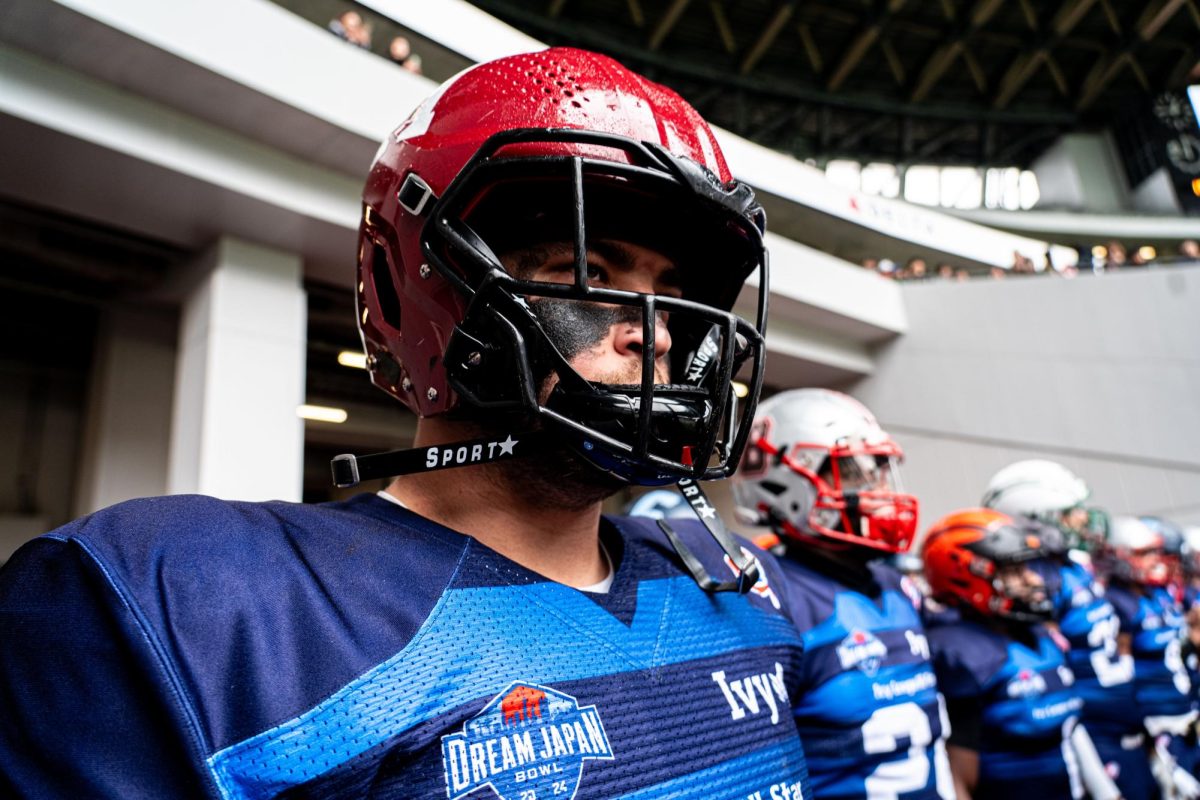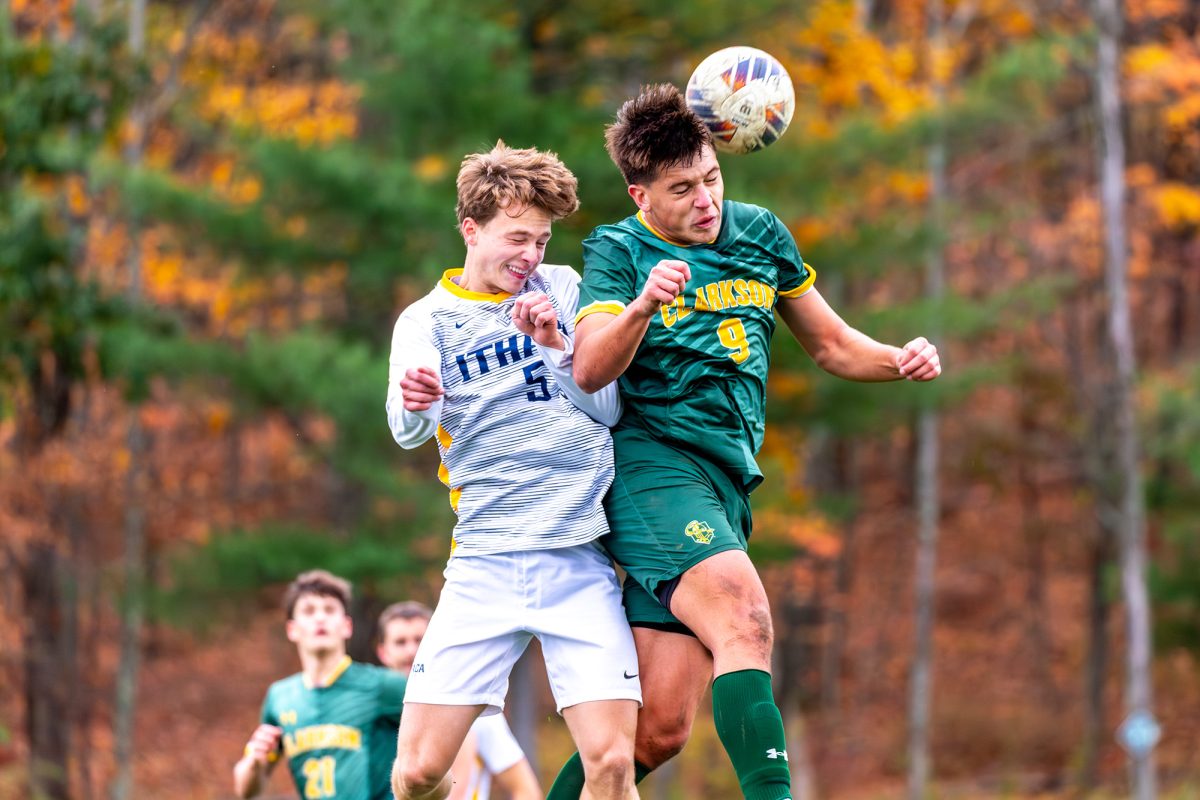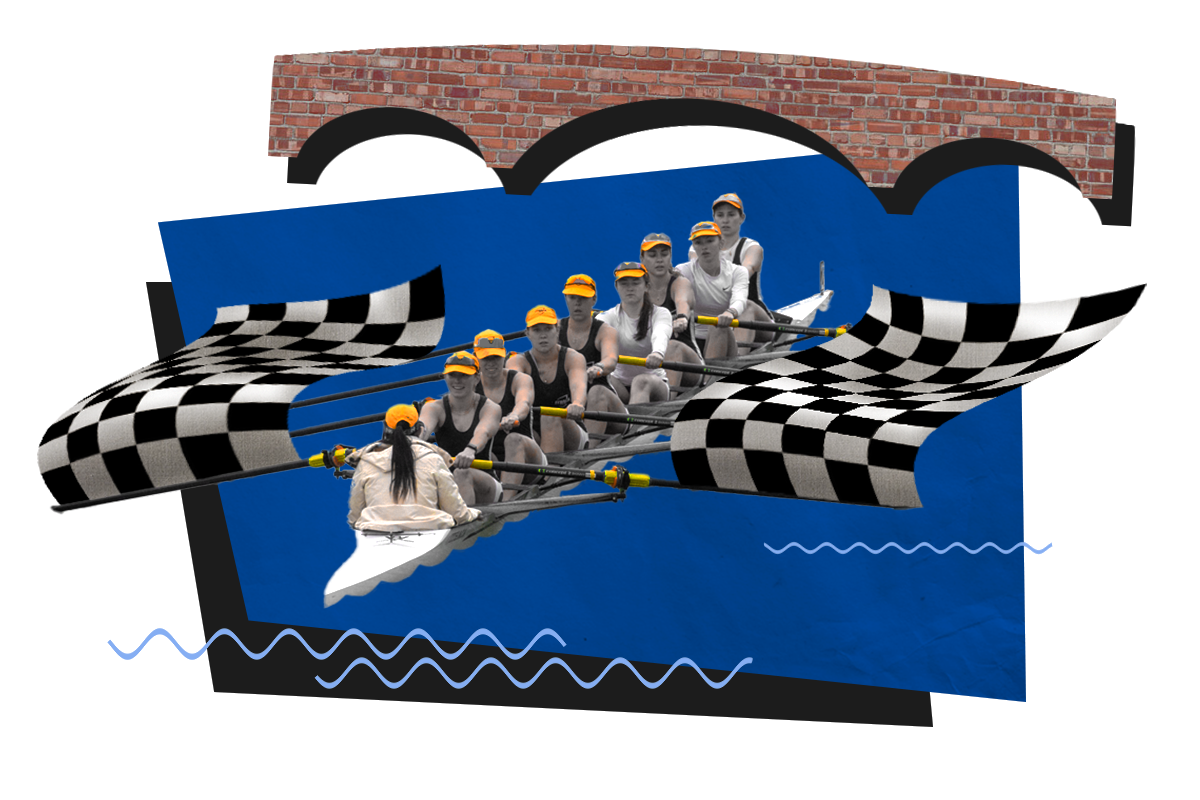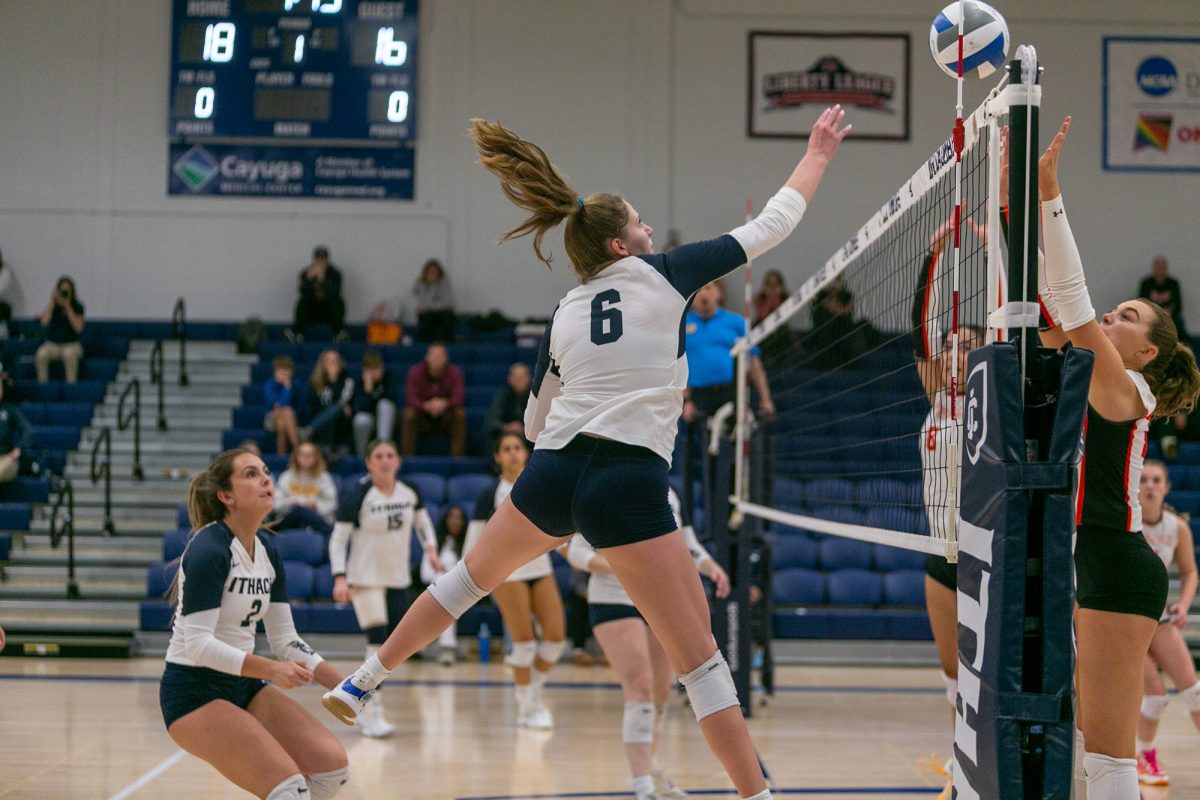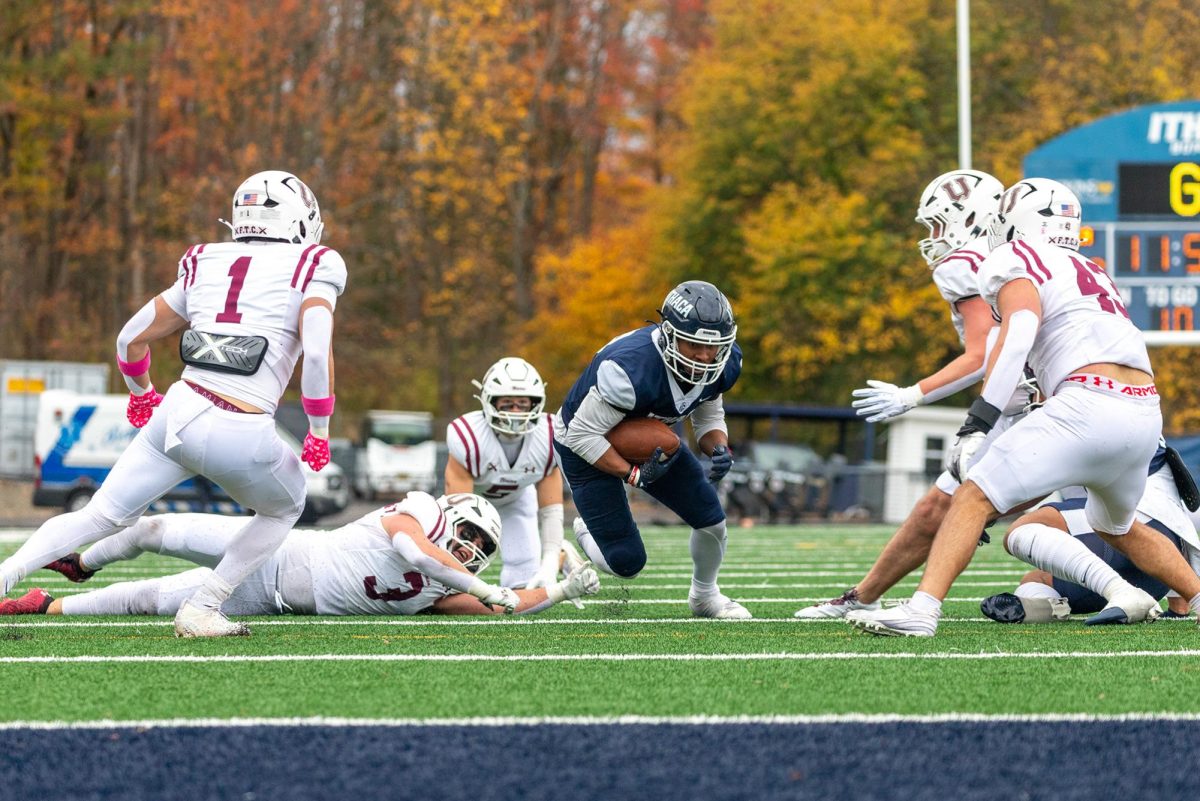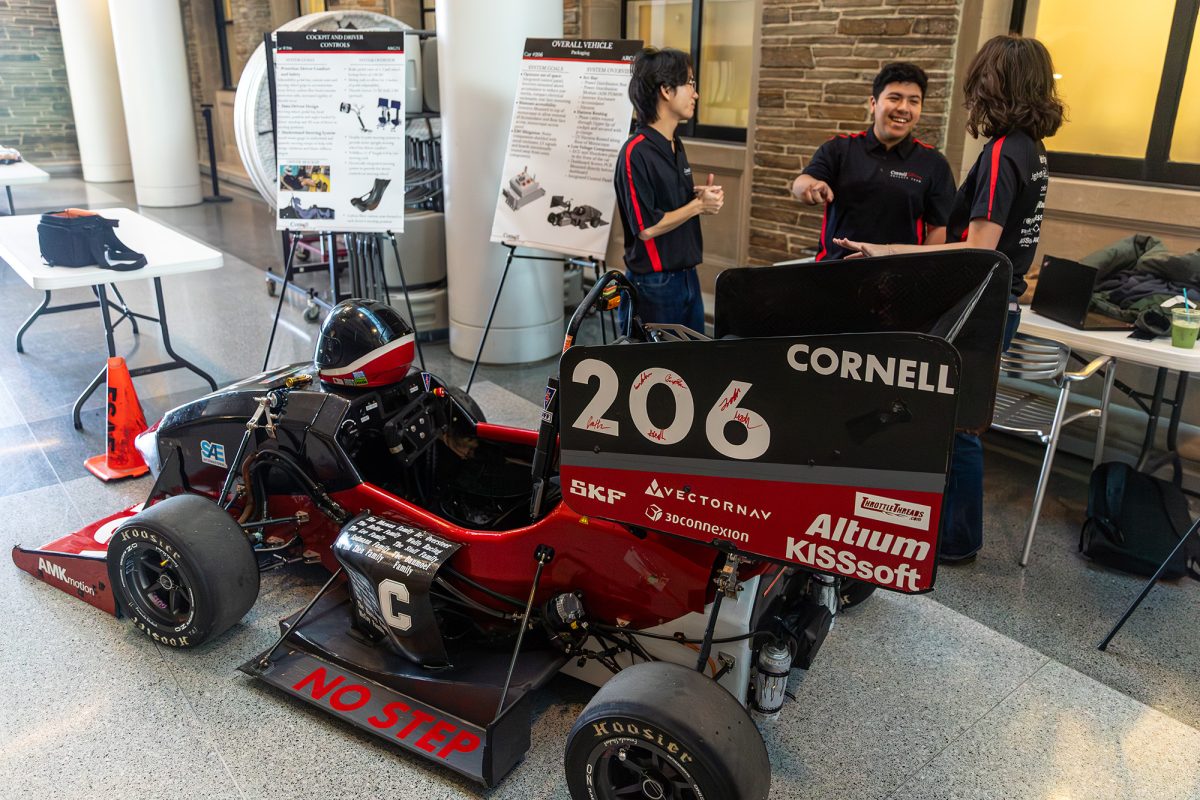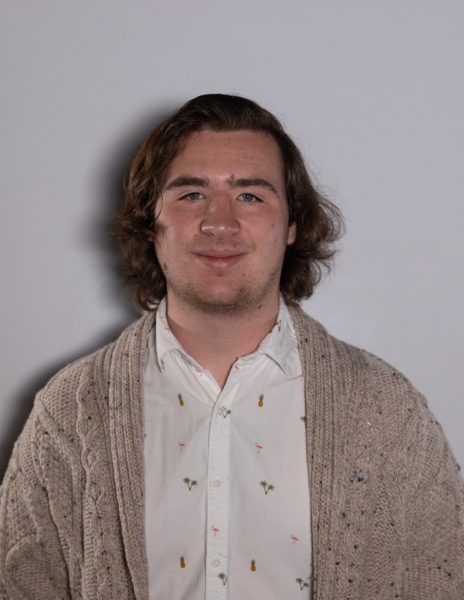A cultural experience and a culmination of collegiate football careers occurred in Tokyo, Japan, on Jan. 21, 6,752 miles away from Schoellkopf Field in Ithaca. This was not an average Ivy League football game — this was the Dream Japan Bowl.
The Dream Japan Bowl is an annual American football game played between the Ivy League All-Stars and Japanese All-Stars in Tokyo. The game was brought back in 2023 with the Ivy League working with the Japan National Football Association.
The Ivy League spent a little over a week in Japan after a 15 hour flight to the country. The team practiced for one and a half hours a day, but when they were not preparing for the game, they were taking in the sights, sounds and educational opportunities the country offers. During the team’s time in the country, they visited the U.S. Embassy, the Ministry of Foreign Affairs, the Meiji shrine and ran youth football clinics to connect the youth of Japan with American football.
What makes the game so unique is that it brings professional players face to face with 52 former stars of Ivy League football. The Japanese All-Stars consisted of numerous former Division 1 players and local Japanese players, while the Ivy League squad was made up of graduating or former Ivy League players.
Despite a 10–5 defeat, Alec Bank, a former Harvard and current Stanford offensive lineman, said that playing against the Japanese squad was impactful and that he was shocked he was going up against players who had been playing the game professionally for over five years.
“The guy who I went against graduated from Wake Forest, and he was on the Eagles practice squad for a year before going over to Japan,” Bank said. “He is 28 years old now. It was definitely a challenge, but I’d say it was definitely fun knowing that that’s what I was going against, knowing it was legit competition over there as well as it was just funny to be like, ‘Wow, I’m 22 going up against a 28-year-old right now.’”
Cornell senior wide receiver Nicholas Laboy said he heard he was selected to be on the team from a teammate and that being together with former teammates made the game even more meaningful.
“I kind of didn’t know, I didn’t really get the list for exactly who was on it,” Laboy said. “I got word from one of my teammates. He told me that the list was released and that I was on it, and I was. We only had four guys there, but I thought it was great to hang out with those four in another country.”
A big part of the game was the cultural impact and passion Japanese fans showed for American football. When stepping onto the field, Laboy said he was shocked to see passion that paralleled the love for the game shown in the United States.
“I was absolutely surprised to see so many Japanese people in the stands on their feet, screaming and going crazy for football,” Laboy said. “I mean, we took a trip to a sumo wrestling tournament, and it was the quietest thing I’ve ever seen compared to a football game. Then we go to the football game and you have these people going crazy for all these plays. But it was amazing to see football really grow in Japan because it really wasn’t expected from me.”
Ivy League Executive Director Robin Harris said the trip was as much focused on exposing the players to culture and education as it was about football.
“[The trip] is providing a true cultural and educational experience to our student athletes that they would otherwise not have had and that was fundamental,” Harris said. “The game was important too, and they get to play the game they love in Japan, which is fabulous, but it really is about exposing them to a very different culture and the education that came with that.”
During the trip, the team visited and ran football clinics with the youth of Tokyo. Cornell senior kicker Jackson Kennedy said that these clinics left an impact on him and that it has formed relationships that are still ongoing.
“I had probably nine or 10 specialists with me, and I was thinking, ‘I’m just going to go do simple drills with them, we’ll kick a ball around or whatever,”’ Kennedy said. “Then you come to find out, these people are kicking 50-yard field goals and 55-yard field goals. That was so beyond me. I didn’t even know that was possible.”
The game might have also influenced the continuation of some of the Ivy League player’s careers. Both Kennedy and Laboy are entered into the NCAA transfer portal as Graduate Transfers. While Laboy said the game probably did not have a vital impact on his future prospects, Kennedy said that having professional kicks on his resume is something that could help him.
“Being able to have a meaningful kick in a meaningful situation sort of just has that power to say, ‘Hey, I’m still playing a game, I’m still ready to go,’” Kennedy said. “I know I don’t know where I’m going, but I’m ready. … Like, I’ve got one shot and there’s one opportunity. So it’s definitely a huge, huge bump.”
Harris said the game varied in how it impacted players, but if it helped players in their future endeavors, the Ivy League is happy they could provide that.
“Some of our players were done and it was gonna be the last game they ever played, so I think it varied,” Harris said. “If it happened to provide extra opportunities for some to have other future opportunities, I think that’s terrific. But again, we were focused on the overall experience of the idea of playing in the national stadium in Tokyo that was built for the Olympics.”
Division lll does not provide nearly the same opportunities for scouting and recognition that a Division l conference like the Ivy League can. Bombers’ junior defensive lineman Josh Miles said opportunities are there for Division lll football to help players get their name out with the expansion of global football.
“Those opportunities are everywhere, especially with the game growing so fast and so many different countries wanting to join in on it,” Miles said. “I think especially with Division lll, with how competitive football is getting in the recruiting process, you’re seeing a lot of top tier athletes. So I think to have the opportunity to connect them with international organizations… .I think connecting Division lll athletes with those institutions and with those organizations would be a perfect match.”
Despite the opportunity being there for more expansion of opportunities in college football, money will always be an obstacle in the lower levels of collegiate sports. Miles said that an organized Division lll pro day or allowing players to talk to scouts at certain points in the NCAA playoffs would open up opportunities for lower division players.
While the game might have been something to be promoted and utilized for many athletes, Kennedy said the experience brought together a group whose bond will last.
“This is something that we have the honor to do; it’s not something that we were just given,” Kennedy said. “We were here because we were able to be an impact on the team, impact games and I want to say we weren’t the closest people on our team, but we definitely have this experience, I mean we’re texting each other or sending contacts and, you know, got side jokes going now. It just shows that you never know who’s going to be your friend, and I’m sure I’ll be able to text those guys in 10–15 years jokes that we’ve made on this trip.”


